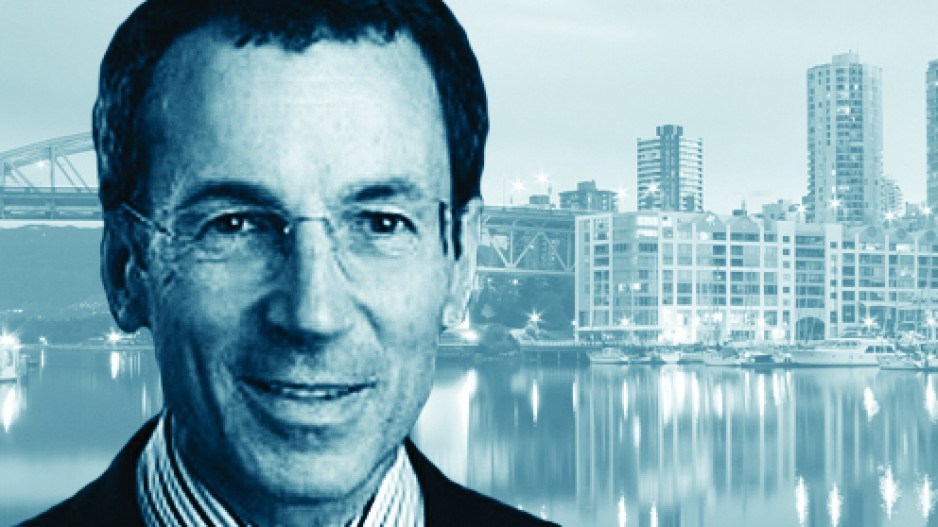Now that the finger-pointing and redefinitions of “world-class” are sinking into the yesterday’s news, one comment about the recent oil spill in English Bay keeps bubbling to the surface.
Dr. Peter Ross, director of the Vancouver Aquarium’s new Ocean Pollution Research Program, lamented the absence of “cohesive long-term monitoring of British Columbia’s coastal ecosystems” in a Canadian Press article.
“The lack of baseline data makes it difficult for scientists to assess the spill’s impact … [and] that renders very, very difficult our ability to protect the ocean.”
In short, we don’t have a clue what this seemingly harmless spill has done to marine life because we don’t know enough about the marine life around us. Actually, we have many clues, but no historical, ongoing, consolidated data.
A new clue emerged for me 10 days after the spill, at a fundraising dinner for the Pacific Salmon Foundation (PSF), a 28-year-old non-profit organization established by the pre-Harper Conservatives to conserve and restore wild Pacific salmon.
PSF CEO Dr. Brian Riddell, a 30-year veteran of the Department of Fisheries and Oceans (DFO), reminded the audience of a recent collapse of salmon stocks right in our marine front yard.
“In the 1970s through the late 1980s, we were catching on average a million coho salmon in the Strait of Georgia every year on recreational gear,” Riddell said. “You’re now allowed to keep zero wild coho. We used to catch 300,000 to 600,000 chinook salmon. We now catch between 25,000 and 50,000 – at a higher weight limit.
“If those fish were here today we could generate another $400 million to $500 million a year in recreational fishery spending.
“The most disturbing thing to me is that it all went away. It plummeted. From 1993 to 1995, 90% of the chinook and coho went away.”
It’s so easy to forget what we’ve lost. J.B. MacKinnon, the Vancouver author of The Once and Future World, reminds us that even baselines like Riddell’s start at 10% of what once used to be here.
MacKinnon said we have to know more about how marine life has changed over time.
“If you know that whales lived here by the hundreds until they were hunted out a century ago, then it becomes possible to imagine their presence in the future. If you aren’t aware of that history, then the absence of whales will seem perfectly normal – natural, in fact,” he said in a Harper’s interview.
There is, of course, oral and written history, but long-term scientific data is even more powerful. Unfortunately, that natural-capital balance sheet is nowhere to be found.
Ross used to head up DFO’s Sidney lab, which did research on marine toxicology: how oil spills, for example, affected marine life. The federal government shut it down in 2012. The transition of his research to the Vancouver Aquarium is part of the federal government’s move away from taking responsibility for our coastal marine wealth. Yes, that opens up opportunities for well-oiled organizations like the Pacific Salmon Foundation to leverage their federal money with other donors, partners, community organizations and international endowments to put together projects like its epic $10 million Salish Sea Marine Survival Project: five years of connecting and enhancing all the data that has a bearing on the health of salmon in our nearby coastal waters.
But the darker undercurrent here is the Conservatives’ recent history of shutting down research, muzzling scientists, demoralizing the DFO, ignoring Cohen Commission recommendations and harassing NGOs defending our natural capital.
The federal government has a historical responsibility for gathering and monitoring long-term data that can guide us back to replenishing our lost natural capital. If ever a budget needed to be balanced, this is it. Right now, it’s showing huge losses.
“The very worst thing we can do in a natural population is wait until it’s very severely depressed and then gamble that we can recover it,” Riddell warned.
“It doesn’t work.”Peter Ladner ([email protected]) is a co-founder of Business in Vancouver. He is a former Vancouver city councillor and former fellow at the SFU Centre for Dialogue.




